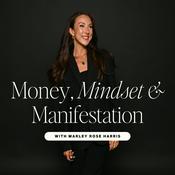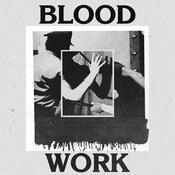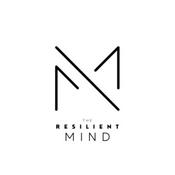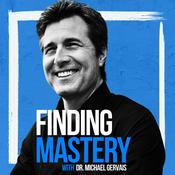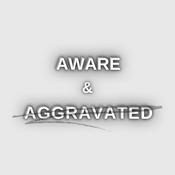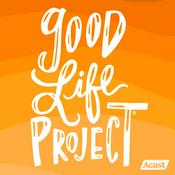21 episodes

41. Senior diaries enrich your later life — Tracy Farr
11/1/2026 | 25 mins.
Teenage diaries tend to be brave, passionate, exploratory, funny and heartbreaking. Senior diaries enrich your life with the clarity, compassion, and wisdom you have gathered over the decades. Writing a diary in old age is a chance to stretch your mind, express yourself, record events, have fun, and make sense of your life. Writer-podcaster Tracy Farr co-founded the Bad Diaries Salon and is the author of three novels, including the brilliant Wonderland in 2025. She knows a lot about diaries and aging. You kept your teenage diary secret for good reason: but a diary at any age brings many rewards. It's a trusted confidant, a creative outlet and a close friend. You wrote it as a strictly one-way communication, but when you're older, you can look back and see that your life has had a shape, a direction. That you have learned a great deal over the decades. And that your young self was not exceptionally foolish, but just, well, young! You'll hear about Tracy's own long-lived grandparents who were her role models for old age. She talks about eight years of Bad Diaries Salons, where writers read bits from their early diaries. What's the difference between diaries or journals and social media? Who are you writing for and what happens to your diaries when you die? We talk about Dr James Pennebaker's influential work on expressive writing and how it relates to diary writing. Why and how does this simple 3- or 4-step process help so many people to function well and stay healthy? Pennebaker unpicks the process of writing (as opposed to thinking) for some fascinating answers. Writing a diary or journal when you're older can help you make sense of your life. You can see development, change, patterns. Perhaps you will see that your life is not just a patchwork of random events, but a story with a theme. And it's not over: senior diaries enrich your life, and it's never too late to start! Bad Diaries Salon Am I too old to start a diary? Debunking Age Myths All the reasons and encouragement you need. Tracy Farr Author Review of Wonderland by Paula Morris on NZ Review of Books Expressive writing can help your mental health, with James Pennebaker, PhD (interview on podcast Speaking of Psychology) Therapeutic Journaling University of Wisconsin, Madison

38. Christmas here, now and everywhere
16/12/2025 | 17 mins.
Christmas is here now — and almost everywhere around the world. But how have your own celebrations changed over the years? How has your role changed and has your attitude towards Christmas changed? Are you more religious or spiritual now than you were 20 years ago? Why has this particular religious festival gone viral? Why do various non-Christian nations celebrate Christmas with a public holiday? How does Christmas vary in different countries? Above all, what does Christmas here and now mean to you? I asked random people this question on Cuba Street, Wellington, and they were mostly in agreement — but with some surprises. And of course I have my own opinions. Observance of Christmas by country (Wikipedia) An old-person Christmas tree (Writeintolife.com) Home alone on Christmas Day, 2015 (Writeintolife.com)

37. A long and joyful working life — Jill Nuthall
17/11/2025
My big sister Jill Nuthall learned skills as a child that were invaluable in her career as a social worker. To realise just how damn good you were in your long working life: write about it! She talks about the people-skills she learned as a child, particularly leadership and team work. These big-sister skills were the foundation for what became a fascinating career as a social worker. Why did Jill enjoy her working life so much? After marrying young, having four children, and living in a stimulating environment in Urbana Illinois, in 1966 Jill became an at-home suburban wife back in Christchurch, Aotearoa New Zealand. Her husband went off to his wonderful job every day and Jill felt stifled and was longing to have her own career. To get a qualification, use her talents, be with grown-ups again. (By the way, that certainly didn't stop her from being a terrific mother and homemaker.) When her youngest started school, she was delighted to be able to start on a long working life. It was by writing a memoir that Jill calls "A Joyful Working Life" that Jill spotted certain themes that ran through her life. At the time, her career seemed like a patchwork, a crazy quilt. But in retrospect, it had a definite shape. She recommends that others do the same thing. If you look back and write about your working life, this can help you to understand what skills you have accumulated and to appreciate what you have achieved. It gives your family a record of your working life and can help you to make sense of all those years at work. Win-win! The episode ends with me reading "A poem for my big sister Jill." I still find it hard to read this one without choking up, and this time I almost made it. Thanks for listening! And if you like my podcast, please tell a friend Suburban women in 1960s New Zealand Poetry book that contains the poem for my big sister. And all big sisters.

36. Love in later life — with Rhonda Pritchard
04/11/2025
What springs to mind when you think about love in later life? In this episode, Rhonda Pritchard delivers some salutary truths about love, roles, sex, intimacy, and (especially) commitment as they apply to older people. Rhonda is a Wellington psychologist and counsellor, rather famous for her clear-eyed best seller, Love in the Real World. Her ideas are based on 40 years' experience as a marriage counsellor, and on her personal experience as a 77-year-old in a long-lasting second marriage. Some of her words may seem blunt — even grim — in a culture that's soaked in red roses and myths of "love is all you need." And yet, In the real world, when you think about relationships in old age, they're just plain common sense. This delightful conversation dances around a serious topic. Expect the odd personal revelation and even a rare Dad joke from host Rachel. Older couples who have worked things out for themselves will feel validated — and others will pick up some very useful advice. Rhonda gives Rachel five tips to use in the highly unlikely event that she ever falls in love and contemplates a new long-term relationship. A different kind of realism: Tips on love from the 20th century Queen of romantic fiction.

35. Check your balance with Vicki Thirkell
20/10/2025
A lively, reassuring chat about how to keep your balance — in body and in life Physiotherapist Vicki Thirkell and I talk about vertigo, dizziness, and that mysterious loss of balance that creeps up as we age. Vicki explains how our inner ear, vision, hearing, pain, and excessive caution all play a part—and how the brain can be retrained to keep us steady. The message? Don’t freeze up: challenge your balance. Wobbling means you’re improving. “Check your balance” applies to more than walking straight: it’s also about how we age, adapt, and stay ourselves. When I got an attack of vertigo, It was Vicki who helped me. Then she tackled another of my problems: feeling unsteady on my feet. Her key message is hopeful and practical: balance can always be improved, at any age, as long as we “do our homework”. That means strengthening our muscles, retraining our brain, and safely challenging our equilibrium—because standing still is no recipe for stability. “Check your balance” is a phrase that resonates well beyond the physical. Balance involves adjusting, and realigning, in body and in life. Getting the wobbles isn’t failure—it’s a starting point for growth. Science, exercise, and humour will help us to keep moving confidently through later life. Do you have problems with your balance? What does that feel like? And how does it affect your life? Live Stronger for Longer Vertigo Balance Clinic, Wellington, New Zealand Cleveland Clinic What is Vestibular Rehabilitation Therapy? A lesson in falling safely with Simon Manns
More Education podcasts
Trending Education podcasts
About Learning How To Be Old
Listen to Learning How To Be Old, anything goes with emma chamberlain and many other podcasts from around the world with the radio.net app

Get the free radio.net app
- Stations and podcasts to bookmark
- Stream via Wi-Fi or Bluetooth
- Supports Carplay & Android Auto
- Many other app features
Get the free radio.net app
- Stations and podcasts to bookmark
- Stream via Wi-Fi or Bluetooth
- Supports Carplay & Android Auto
- Many other app features


Learning How To Be Old
download the app,
start listening.




